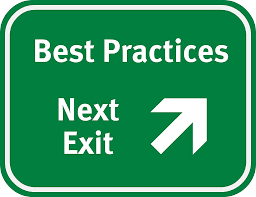We all speak regularly of “best practices,” but what exactly are best practices, and when and how does something become best practices, and are they always “best?” An article in thatcompany.com provides several fairly obvious definitions:
-a method or technique that has been generally accepted as superior to any alternatives because it produces results that are superior to those achieved by other means,
-a set of guidelines, ethics or ideas that represent the most efficient or prudent course of action
I have been thinking of best practices as it relates to all of us making the transition from classroom education to Zoom education, and from day and overnight camping, to virtual camping. It is wonderful that so many of us are in the same boat at the same time and are figuring it out. Those of us in summer camping are learning “best practices” from classroom teachers who have a few more months of experience of what works.
At Camp Ramah, our National Ramah Tikvah Network is about to launch a 12 session virtual vocational training program. We are learning what works and what doesn’t work from teachers of vocational education who, three short months ago, had no idea how to teach online. In a sense, so many of us are establishing best practices in a very short time and sharing them with our colleagues. It will be interesting what will end up being seen as best practices in online education and camping.
In researching the topic, I came across a Forbes article by Mike Myatt who argues that there is a downside to using the term “best practices.” He argues, “One of the most common reasons for pursuing best practices in a given area is to avoid having to “reinvent the wheel.” Think about it like this – if nobody ever reinvented the wheel, they'd still be made from stone.”
He goes so far as to say that there is no such thing as best practices” and he is trying to extricate the term from his vocabulary. “The reality is best practices are nothing more than disparate groups of methodologies, processes, rules, concepts and theories that attained a level of success in certain areas, and because of those successes, have been deemed as universal truths able to be applied anywhere and everywhere. Just because someone says something doesn’t mean it’s true.”
Myatt introduces his concept of “next practices.” “I began using the term next practices in an effort to focus people forward in their thinking. Why would you want to do business in the same fashion as your competitors? Don’t utilize your competition's practices, but rather innovate around them and improve upon them to create an advantage that can be leveraged in the market. Be disruptive in your approach and don’t fall into the trap of doing something in a particular fashion just because others do it that way – think “next” practices not best practices. Here’s the thing – best practices maintain the status quo and next practices shatter it.”
Admittedly, the field of online teaching and camping are young and thankfully, our fields are collaborative and not competitive. I am not sure what “next practices” will look like in these fields, but it is important to keep in mind that even in a new field, there is room to be disruptive. May be quickly find best/next practices which we can use to the benefit of our students and campers!
